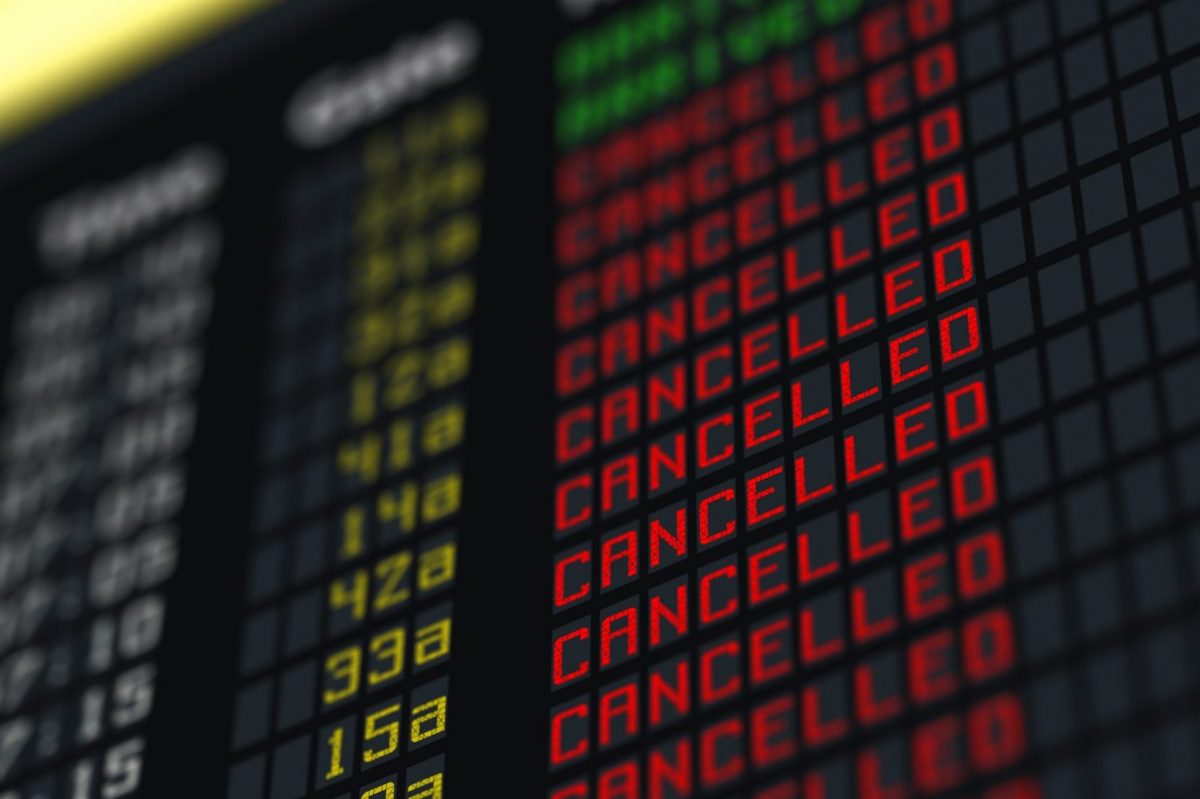One Software Update, a Global Airline Meltdown

Skift Take
The real-life Y2K. “Blue Screen of Death.” The IT outage that has affected everything from Times Square billboards to payrolls has also led to a worldwide meltdown in the airline industry.
As of Friday afternoon there were over 7,000 delays and around 2,400 cancellations in the U.S., according to flight tracking site FlightAware. Globally, the outage has caused nearly 4,000 cancellations, and nearly 34,000 delays, according to the latest data from Cirium.
Even as businesses slowly begin to recover from the massive outage, the number of flight disruptions is only expected to grow for the next few days.
The outage was traced to Crowdstrike, a cybersecurity firm that a range of industries depend on for protection against hackers and data breaches. A software update the firm issued led to crashes in systems that use Microsoft Windows’ operating system.
The outage hit American Airlines, Delta Air Lines and United Airlines particularly hard. The three airlines netted a total of 1,210 cancellations as of noon.
Friday’s outage also sent airports scrambling. One passenger in India shared his handwritten paper boarding pass, a sight that hasn’t been seen in years.
| Airline | Scheduled Flights | Canceled Flights | Delayed Flights | % Canceled |
|---|---|---|---|---|
| American Airlines | 6,026 | 363 | 953 | 6.02 |
| Delta Air Lines | 5,002 | 806 | 1,113 | 16.11 |
| United Airlines | 4,281 | 376 | 1,211 | 8.78 |
| Southwest Airlines | 4,390 | 4 | 963 | 0 |
Source: FlightAware as of 2:30 p.m. ET
U.S. Passengers May Be Entitled to Refunds, per the DOT
In April, the Biden administration unveiled a new rule that would require airlines to provide automatic refunds to passengers in the event a flight was canceled or significantly delayed. That rule became law when Congress passed the FAA Reauthorization Act in May.
However, automatic refunds don't appear to apply in this case. A spokesperson for the Transportation Department told Skift that Friday's outage counts as a "controllable" event — the automatic refunds rule doesn't go into affect until October 28. The spokesperson said passengers affected by the disruptions have a right to a refund, but they would need to request one from the airline.
Under DOT rules, airlines are responsible for providing prompt refunds, including ones for non-refundable fares, if they cancel or significantly delay a flight. Passengers are entitled to these refunds if they decide not to accept an alternative flight.
Airlines Are Not New to Software Outages
Friday’s outage showed the fragility of the system and the dependence on IT infrastructure.
This isn’t the first time the airline industry has experienced a massive IT outage that has nearly grounded all operations. In January 2023, a failure in the Notice to Air Missions system, which is used for sending messages to pilots, caused the Federal Aviation Administration to issue a nationwide ground stop, causing thousands of flight cancellations and disruptions.
Southwest Airlines also experienced a meltdown in December 2022 that was partly due to dated IT infrastructure that struggled to recover after a severe winter storm. That meltdown led Southwest to cancel nearly 17,000 flights during the holiday travel season.
However, outages — especially one of this scale — are extremely rare.
The impact of Friday’s outage is similar to a severe and unexpected hurricane hitting the entirety of the U.S.
With severe weather, airlines are able to anticipate and may preemptively cancel flights or move aircraft around. But given that Friday’s outage was unanticipated, it could take days for airlines to restore their operations, said Volodymyr Bilotkach, an associate professor at Purdue’s School of Aviation and Transportation Technology.
“They could not do anything of this kind at this time because obviously that was not an anticipated event,” Bilotkach said.
In an interview posted on X, Transportation Secretary Pete Buttigieg warned that travelers may experience more disruptions as airlines try to restore their operations.
"The issue has been identified," Buttigieg said. "It's really a matter of the kind of ripple or cascade effects as they get everything in their networks back to normal. These systems, these flights, they run so tightly, so back-to-back, that even after a root cause is addressed, you can still be feeling those impacts throughout the day."
Airlines Sector Stock Index Performance Year-to-Date
What am I looking at? The performance of airline sector stocks within the ST200. The index includes companies publicly traded across global markets including network carriers, low-cost carriers, and other related companies.
The Skift Travel 200 (ST200) combines the financial performance of nearly 200 travel companies worth more than a trillion dollars into a single number. See more airlines sector financial performance.





